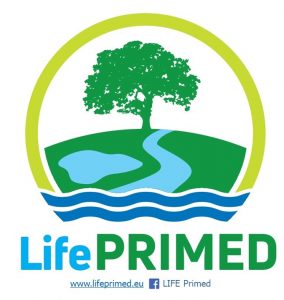The 29th edition of the IMES – International Master in European Studies ended in July 2019: time really does move faster when you put yourself out there facing new challenges! But on the IMES board we are addicted to new adventures as we are already looking forward to the 30th edition, starting on the 16th of September.
 This month, however, we would like to share a happy-ending story: the one of Vito Emanuele Cambria, participant of the 23rd edition of the IMES Day Programme held in 2016. After the programme Vito became a successful project manager and his proposal got finally awarded. We couldn’t help but to ask him to share his personal and professional victory with us.
This month, however, we would like to share a happy-ending story: the one of Vito Emanuele Cambria, participant of the 23rd edition of the IMES Day Programme held in 2016. After the programme Vito became a successful project manager and his proposal got finally awarded. We couldn’t help but to ask him to share his personal and professional victory with us.
Brief introduction: what is your background, what are the factors that pushed you to attend the IMES programme in Brussels?
I am an Italian biologist daily dealings with threatened ecosystems and their disappearing inhabitants: plants, animals, and fungi shaping the marvelous natural heritage Europe yet holds. Concrete actions are necessary to keep safeguarding such great biological and landscape diversity. After years spent studying botany, ecology and conservation biology, I felt the need to move from theory to practice. EU funding programmes were the answer to my quest. In the past, I had the opportunity to become familiar with EU projects as implementing expert, but only after attending the IMES programme I started understanding for real how the machine works! During the Course you can, first, build up a comprehensive picture of the EU functioning mechanism (this makes you also a better EU citizen, by the way, an additional aspect that should be never underestimated). Secondly, you can rely on trainers, with first-hand experience on EU project appraisal and implementation, which step-by-step will lead you to the acquisition of sound competences in the most important EU Programmes (LIFE, H2020, INTERREG, COSME, etc.) and Project Management tools and techniques. They are the ones with the cat’s in the cradle!
What happened immediately after the end of the IMES programme? What changed and how did you put into practice what you learned in class? ( How was the adjustment overall)
Other colleagues and I have struggled for more than three years to find resources to finance a project aimed to halt the ecological decline of one of the last remaining coastal woodlands of central Italy: the wood of Palo Laziale, 40 km west of Rome. On three occasions our proposal was rejected. After I attended this course and secured the certificate on July 2016, the project proposal passed the selection as first-ranked LIFE project at the first attempt! The right satisfaction after so much work and many weeks spent in the classroom. During the Programme, I have definitely got tools, methods, and very useful tips to uplift my scientific background into high-level project designing skills.
 Would you describe the project that was awarded? What is your role in the consortium?
Would you describe the project that was awarded? What is your role in the consortium?
The project LIFE PRIMED “restoration, management and valorization of PRIority habitats of MEDiterranean coastal areas” (LIFE17 NAT /GR/ 000511) aims to improve the conservation status of habitats and species living in the protected areas of Palo Laziale wood and Nestos Delta, Natura 2000’s sites located in Italy and Greece, respectively. The project is working to develop and scale up innovative environmental engineering solutions and promote community engagement and nature-based tourism. I am the Project Manager of this project, a role of great responsibility, that also makes me proud. Certainly, those weeks in Brussels served me to acquire management skills which I could hardly gain anywhere else.
Overall, how do you think the IMES programme helped you to make this qualitative leap in your career? Which are the determinant skills that it conferred to you in order to write a successful project?
I learned how to proceed with order in structuring an idea in a coherent framework. I had never heard before of problems and objectives trees, or logical framework, “mates” that are now core part of my job routine. In addition, I became familiar with the proper language and terminology: long-term strategy, sustainability and replicability. Such expressions became almost my “life-mottos”.
To someone that’s considering applying to this course, would you recommend it and why?
I can certainly recommend the IMES programme. The people arranging this course are among the best professionals I have ever met in my life. The schedule is well-prepared, the work-load is quite affordable and in line with the lessons flow. The classrooms are usually multicultural and age-mixed. If you are willing to understand how the EU machine works, you must first connect yourself with the Brussels Bubble. Breathe EU policies and programmes, walk with your own feet in the EU institutions’ buildings. You have two choices: do it by yourself or, just like I did, entrust one of the best Europe mother house’s Cicerone. I am pretty sure, you already made your choice.
Thank you, Vito Emanuele, for sharing with us your story. We wish you the best of success!
Would you like to know about the LIFE PRIMED project? Find below more links:
IMES Day Programme, 2016 – 23rd ed., Graduate
Project Manager LIFE PRIMED
www.facebook.com/lifeprimed
http://www.linkedin.com/in/vitoemanuelecambria